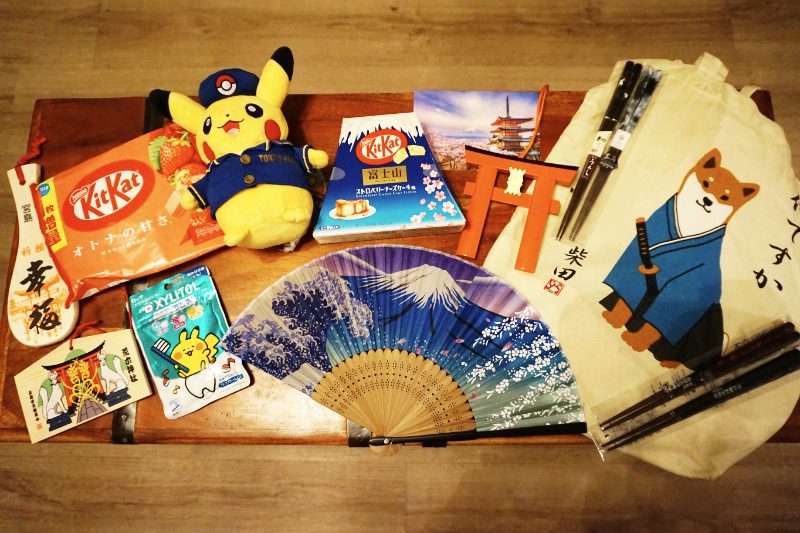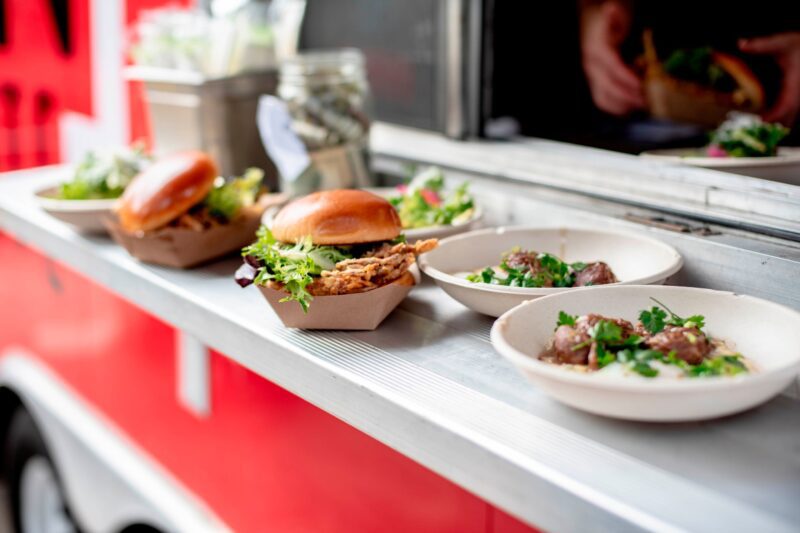
Share Post:
When most people picture food in Munich, they think of beer gardens, giant pretzels, and sausages sizzling on the grill. While those staples still thrive, Munich’s culinary identity has been shifting over the last decade.
Beneath the surface of traditional Bavarian dining, the city has cultivated a vibrant street food culture.
Today, you can wander into a market square or nightlife district and find dishes that range from authentic tacos to vegan kebabs, all served from trucks, small stalls, or pop-up kitchens.
Street food in Munich is no longer just about grabbing something quick; it’s part of the city’s lifestyle. This experience reveals another side of Munich – one that’s modern, global, and full of character.
Why Munich’s Street Food Scene Is Worth Exploring
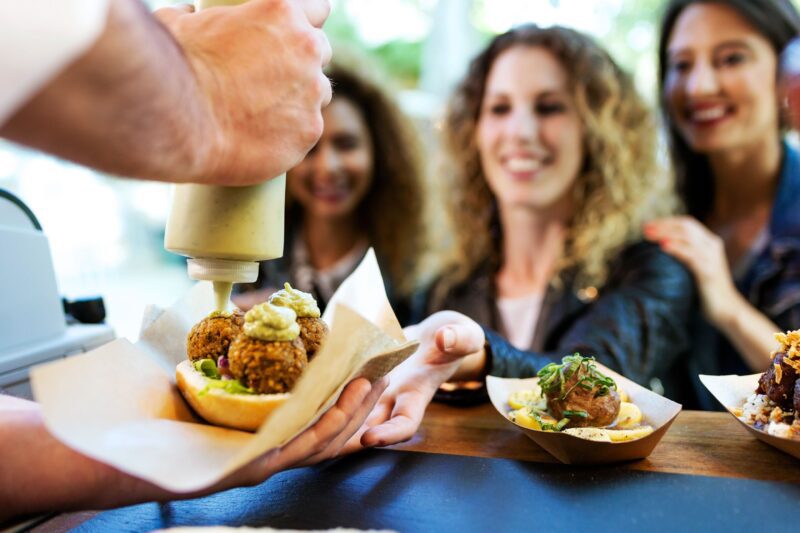
Munich has always been a city that balances tradition with innovation. Oktoberfest, the beer halls, and hearty Bavarian classics are timeless, but the younger generation and the city’s growing international community have introduced fresh influences.
Today’s street food scene is shaped by chefs experimenting with global recipes, immigrants bringing flavors from their homelands, and locals hungry for variety.
What makes Munich stand out is the atmosphere around street food. Eating at a stall isn’t just about food—it’s about soaking in the buzz of the city. At Viktualienmarkt, for example, you’ll find office workers grabbing a quick bao bun during lunch, tourists sipping smoothies, and locals chatting over organic wraps.
In Werksviertel, the vibe shifts to something more urban and youthful, where street food pairs with art installations and live DJs.
This culture of mixing food, music, and socializing is why Munich’s street food deserves more attention. It captures the spirit of a city that loves its traditions but isn’t afraid to try something new.
Street Food Markets That Set the Tone
Munich’s markets are the perfect place to experience variety in one spot. They’re lively, colorful, and attract everyone from students to families and tourists.
- Viktualienmarkt – This isn’t just a tourist attraction. Amid the traditional cheese and cured meats, small stands sell fusion bites like Asian dumplings, vegan wraps, and fresh smoothies. Prices vary from €5–€12, depending on the stall.
- Street Food Thursday at Werksviertel-Mitte – A hotspot for the younger crowd. Expect burgers with truffle mayo, bao buns, and tacos served with a Bavarian twist. The atmosphere is urban, hip, and perfect for an evening hangout.
- Midnight Bazar – More than just food, this night market mixes vintage shopping with live DJs and craft beer. The food stalls offer everything from falafel to pulled pork sandwiches, usually in the €6–€10 range.
These markets are not just for eating – they’re about mingling, listening to music, and soaking in Munich’s modern vibe.
Food in Munich is deeply tied to social connections. Sharing a plate at a market or grabbing kebabs after a concert is as much about community as it is about taste. For some, that sense of connection also extends to Munich’s nightlife scene in more exclusive ways.
Services like München escort blend discreetly into the city’s cosmopolitan rhythm, offering companionship that complements evenings spent exploring bars, concerts, and street food festivals. It’s another reminder that Munich is a city where food and social life are seamlessly intertwined.
Global Street Food Flavors in Munich
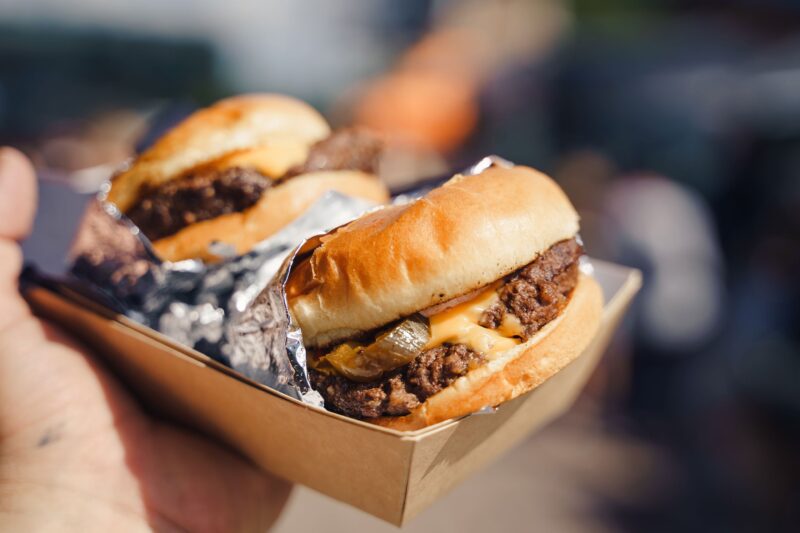
Munich has become a crossroads of global cuisines, and its street food reflects this multicultural energy. You no longer need to book a table at a formal restaurant to enjoy authentic international flavors—you can find them while strolling through the city.
- Tacos at La Taquería Milagros (Glockenbachviertel)
A favorite among locals and expats alike, this taquería captures the essence of Mexican street food. Their tacos al pastor, complete with juicy pork and pineapple, are the star, best enjoyed with a margarita or cold cerveza. Prices hover around €10–€12 for a filling meal. - Vietnamese Banh Mi in Haidhausen
Haidhausen has grown into a neighborhood where Asian flavors thrive. Small stalls and casual shops serve fresh banh mi sandwiches packed with pickled vegetables, grilled meats, and herbs. At around €7, it’s one of the best value street eats in Munich. Locals love grabbing one for lunch and eating it along the Isar River on sunny days. - Swagat Indian Street Food Truck
Parked regularly near Theresienwiese, Swagat serves samosas, paneer wraps, and curries with bold, authentic flavors. Affordable and satisfying, it’s especially popular with students and festival-goers. Dishes range from €5–€8, making it an easy choice for a quick yet flavorful bite.
Together, these global influences highlight Munich’s openness. The city has embraced street food as a way to connect cultures and let locals travel through flavors without leaving town.
Where Munich Locals Go After Dark
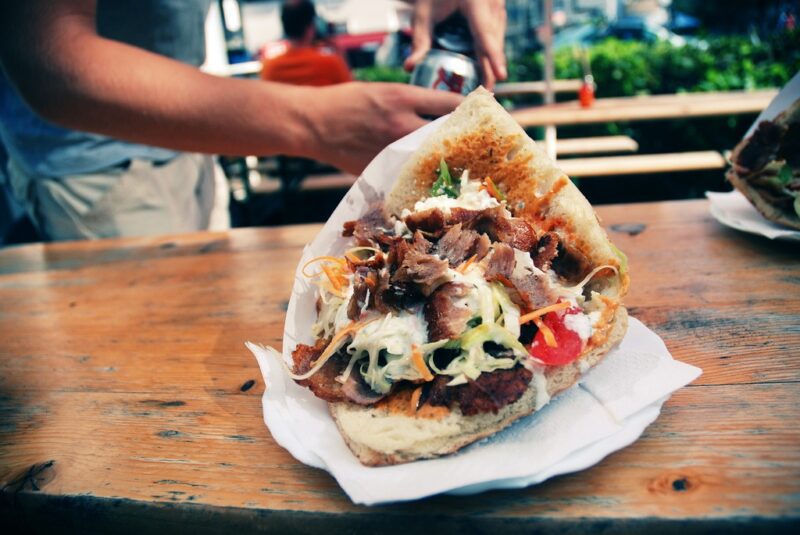
Munich’s nightlife blends perfectly with its food scene. When the clubs close and the beer gardens wind down, locals turn to street food trucks and late-night stalls.
Here’s where the city really comes alive after midnight:
- Bergwolf – A cult spot near Gärtnerplatz. Their currywurst and fries have achieved near-legendary status as post-party fuel. Crowded, noisy, but full of character.
- Kebab Stalls in Sendlinger Tor – Doner kebabs are a German classic, and Munich’s central district is lined with options. Many stay open until 4 AM, catering to the club crowd.
- Food Trucks at Feierwerk – Live concerts and events here always attract a few food trucks outside, offering burgers, pizza slices, or vegan bowls until late.
This is the moment when Munich feels like both a big city and a small town—intimate, fun, and filled with stories.
Vegan and Vegetarian Street Food Rising
Plant-based dining has gained serious momentum in Munich, and street food has embraced the trend. Vegan and vegetarian stalls are no longer niche—they’re central players in the scene.
- Vegan Döner Kebabs
Places like Dönerladen in Glockenbachviertel are reinventing Germany’s most famous street food with jackfruit or seitan instead of meat. These versions are flavorful and filling, appealing not only to vegans but also to curious carnivores. - Falafel Stalls in Schwabing and Maxvorstadt
Popular among students and younger crowds, these falafel stands offer wraps, bowls, and plates loaded with chickpeas, hummus, and fresh vegetables. Priced at €5–€7, they’re both affordable and healthy. - Vegan Food Truck Festivals
Held a few times a year, these festivals showcase creative plant-based dishes—think vegan burgers, wraps, and desserts. They attract large crowds and highlight Munich’s role as a trend-forward city.
This plant-based revolution reflects a wider German trend toward sustainable eating and health-conscious choices.
Final Thoughts
Munich’s street food culture is more than just a modern fad – it’s a natural extension of the city’s identity. While pretzels and sausages will always have their place, the variety of tacos, dumplings, vegan wraps, and late-night kebabs shows how diverse and dynamic Munich has become.
If you really want to understand the city beyond its postcard image, follow the locals into a night market, share a plate of currywurst after a concert, or enjoy a vegan kebab in a trendy neighborhood. Munich’s flavor isn’t found only in its beer halls – it’s alive on the streets.



